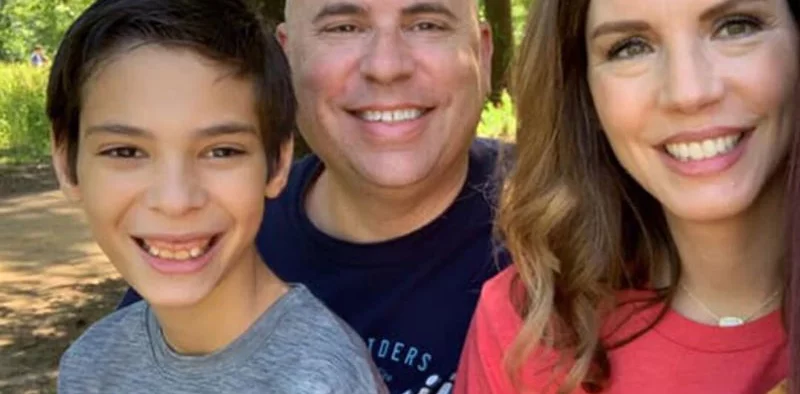Texas Pastor and Ministry Leader Richard Logan Kills Family and Self

It’s not an assignment any law enforcement officer wants: Knocking on a woman’s front door and then telling her that her husband just killed himself with a single bullet to the head.
When no one answered the door, a neighbor let the officers in. That’s when they made the gruesome discovery: the woman and her son had been shot dead.
Soon, a clearer and more troubling picture emerged about Richard Logan, a former pastor who led the charity, Attack Poverty.
As a Houston TV station reported:
“Richard Logan shot his wife Diana multiple times and shot their 11-year-old son Aaron once, according to the Fort Bend County Medical Examiner.
“Logan then drove to San Marcos where his daughter attends college and tried to strangle her before taking his own life, according to Sugar Land police.”
For years, Logan had been one of the pastors at the multi-site River Pointe Church before he founded Attack Poverty in 2001. The ministry works domestically (in four Texas cities) and internationally (in Rushere, Uganda).
The 501-c-3 helps adults with everything from GEDs, computer skills, English skills, jobs searching skills, mission trips, summer kids camps, mentoring, and Bible studies, and has an annual income of just over $1 million, a couple dozen employees, and thousands of volunteers.
Representatives of both the church and the charity say they never saw the double murder-suicide coming.
“The Attack Poverty family is in shock to learn of the tragedy involving our Chief Executive Officer Richard Logan and his family,” said the group on its website.
Patrick Kelley is the founding pastor of River Pointe Church, which will host a memorial service for the family Monday afternoon. He had known the Logan family for 15 years and pastored alongside Richard.
“We knew the Logans very, very well,” Kelley told KHOU. “I stand here in shock with everyone else who knew these precious people.”
Caring for All, Except Themselves
It will take time to figure out what snapped in Richard Logan, but if he’s like many pastors and parachurch leaders, he’s has no one to share his heart with.
Logan’s story sounds like it may be an extreme version of the problem The New York Times’ Samuel G. Freedman described in his 2009 article, “When Serving the Lord, Ministers Are Often Found to Neglect Themselves.”
As Freedman pointed out, “An emerging body of evidence over the last two decades has shown that ministers are more vulnerable to diabetes, depression, hypertension, gastrointestinal distress and heart problems.”
Most churches avoid discussing mental health issues of leaders or members, other than to gossip about them, according to a 2017 survey funded by Focus on the Family and conducted by the Southern Baptist Convention’s LifeWay Research.
“Suicide remains a taboo subject in many Protestant churches,” the study concluded. That taboo remains despite the fact that the evangelical church has seen a number of suicides among high profile leaders recently, including California pastors Jarrid Wilson and Andrew Stoecklein. Some church leaders are trying to break down that taboo, including evangelical leaders Rick and Kay Warren, who lost a son to suicide. (You can read MinistryWatch’s conversation with Kay Warren, in which she discusses her son Matthew’s death by suicide, here.)
While eight in 10 Protestant senior pastors believe their churches are equipped to intervene with someone who is threatening suicide, only 4 percent of churchgoers who have lost someone to suicide say church leaders were aware of their loved one’s struggles. And 55 percent of churchgoers said people are more likely to gossip about a suicide than to help a victim’s family.
It’s not that many years ago that Focus founder James Dobson faced condemnation for embracing therapeutic principles. “Dobson uses the Bible as a sanction for dispensing un-biblical ideas to unsuspecting readers and listeners,” wrote one critic who accused evangelical leaders of “promoting the psychologizing of Christianity” instead of trusting in “the cross of Christ, the word of God and the work of the Holy Spirit.” (Prophets of Psychoheresy)
Two years ago, Christianity Today columnist Ed Stetzer called attention to the need mental health issues out of the closet in his column, “Necessary Conversations: The Church, Suicide, and Mental Health.” Stetzer wrote, “According to these studies, 76 percent of churchgoers agree that suicide is a problem that needs to be proactively addressed in their local communities and 84 percent agree churches have a responsibility to provide resources and support to individuals with mental illness and their families.”
Stetzer continued:
Overwhelmingly, churchgoers agree that suicide and mental health need to be addressed and that the church has a responsibility to be a leading voice in the conversation.
Among Protestant churchgoers who have had a family member or close acquaintance die by suicide, only 4 percent said that church leaders were aware of the person’s struggles or risk of suicide in the months prior to death; and another 4% said that church members were aware.
This is antithetical to how the church should function relationally—our churches should always be places of safety and community for those wrestling with any issue, especially those involving mental health.
Sadly, very few people at risk of suicide are talking to their church communities about their personal struggles. Additionally, only 14 percent of churchgoers reported their church had provided training and resources for ministry leaders to be able to even identify signs of someone at risk of committing suicide in the last year.
There could be a multitude of reasons for both of these findings, but we as the church and Christians must be more intentional and proactive regarding prevention.



